Even as a 13-year-old, I had strong views on education. I had the opportunity to study in two countries with entirely different education systems. I began my education in India and studied for five years in Ahmedabad. My father then moved to the United Kingdom and I studied in a London-based school for a year.
In India, I disliked school and grew to hate exams. My time in the UK transformed my school experience. I loved my classes and going to school. When I returned to India, I decided not to go to school. Instead, I studied at home and curiously missed not having to write exams at the end of the year.
360° Context: The State of the Indian Republic
I can speak about the Indian schooling system with confidence. My experience has been corroborated by others. The Indian schooling system seems to have common problems across the country and needs major reform. I stayed in London only briefly and do not know as much about British schooling. Some experiences may be unique to the particular school I attended.
My Indian Experience
When I went to school in India, I studied diligently and my teachers liked me. I participated in many extracurricular activities such as dance and art that I tremendously enjoyed. On the whole, however, I did not like school and was unhappy.
One of the reasons for my unhappiness was my school’s rigid dress code. Every day, I was supposed to turn up wearing an impeccable uniform. My hair had to be shiny, well-oiled and held together by a black hair tie. Every morning, teachers would scrutinize uniforms before class. They expected students to follow the school dress code diligently. We were warned of the dire consequences if we violated the code. For example, they threatened to paint the nails of boys who grew them long.
Ironically, teachers imposed these rules most strictly on those too young to dress themselves. The 6-year-olds who came to school were terrified of being publicly humiliated and punished for something outside their control. I found this system of punishment archaic and problematic. To me, the rules my school obsessed about did not seem relevant. I felt the school was trying to fault students for the smallest of details.
Another reason why I did not enjoy school was the poor behavior of certain teachers. They mocked some students by giving them humiliating names. These teachers also casually swore at us if we erred. Although I was never a target of this, I found such behavior disconcerting.
My physical education teacher often behaved this way. He gave us demeaning names, swore at us and imposed severe punishments, such as running around the playground and performing squats. This teacher also hit children who frustrated him. Because of this teacher, I did not like the physical education classes and stayed away from sports. My mother and I lodged a complaint against him but nothing came out of it. The school principal claimed to be against the teacher’s methods. However, she did nothing. To this day, the teacher remains unchanged.
I have vivid memories of the vice principal too. On one occasion, she interrupted class to announce a new rule: No student would speak any language other than English at school. She told us menacingly that, if students broke this rule, they would be fined. Immediately after making this announcement, the vice principal started conversing with the class teacher in Gujarati. The fact that the class teacher taught us English exaggerated the irony of the situation. The vice principal was also infamous for being rude and condescending not only toward students, but also their parents and even grandparents.
Insults, threats and hypocrisy made school unpleasant. I eagerly looked forward to afternoons when I could leave school and return home. At night, I felt anxious because I feared the morning when I would have to get ready and leave for school. Often, I missed school by claiming to be unwell.
I must point out that my school enjoyed a great reputation. It is deemed to be one of the best in Ahmedabad. Schools in my city and in much of India are run according to the same norms. My friends in other schools had similar experiences. Changing schools seemed futile. After going away to the UK and experiencing British schooling for a year, I came to realize exactly why I had disliked school in India. The problem was much bigger and systemic than the occasional rude teacher.
My British Experience
I moved to the United Kingdom because my father chose to do a degree there. When we moved, the school year had already begun. Few schools were admitting students. We went to different schools to see if they would admit my elder sister and me. My sister visited two or three schools before finding a place in one. I was unexpectedly admitted into the first school we stepped into. The school administrator told me that I would start the next day.
This news came as a surprise to me. A bigger shock awaited when the administrator revealed that my teacher was to be a “he.” In India, I had found male teachers to be the most aggressive, insensitive and rude. I feared this would be the case in the UK as well. I was already anxious about going to school in a new continent. Knowing that my new teacher would be male added to that anxiety.
On my first day at school, I arrived late. My mother and I lost our way in a new city. To my surprise, the teacher was waiting for us. He was friendly and kind. Within minutes of meeting him, I calmed down. I was ashamed of the preconception I had formed of him. My teacher had turned out to be very different. He asked three classmates who had volunteered to be my “buddies” to show me around. They broke the ice and I felt welcomed on the first day at school.
I found my British school to be completely different from my Indian one. Teacher–student interactions were more friendly, open and informal. Students called teachers by their first names. This was rare even for UK schools and took some getting used to.
In India, schools are hierarchical. Teachers are patronizing even when they are polite. Students are almost always belittled. They have to address their teachers as “sir” and “madam” as a sign of respect. However, teachers rarely reciprocate the respect, which I have always believed to be unfair. Students are the most important people in any education system, deserving of respect in return.
In the UK, I liked addressing my teacher by his first name. In my view, this formed a closer connection and an amiable learning atmosphere. My British teacher often sat down with us and shared what was planned for us academically. We could ask questions freely and he would respond to them diligently. He had high expectations from us and made us think. In the UK, I realized that schools could maintain discipline without condescension. The teacher–student relationship can be one of mutual respect.
In India, schools obsess about discipline. Students have to comply with a laundry list of rules and are punished even for minor violations. Corporal punishment is now rare in urban areas but still occurs. Some parents even support this form of punishment. They believe in the archaic dictum, “Spare the rod, spoil the child.”
The discipline enforced in Indian schools seems to have surprisingly little impact. When they leave school, the people of India are hardly rule-conforming; in fact, they are rebellious. This is most evidently seen on the roads of India where drivers blatantly ignore traffic rules. Painting zebra-crossings, for example, is wasteful. The drivers of India have unanimously decided to ignore them, despite being instructed otherwise when obtaining their licenses.
In the UK, my school did have rules and imposed them. However, they were fewer, less controlling and more sensible than those in India. The teachers were authoritative when necessary but never authoritarian.
In India, even when teachers acted in our best interest, they did so in an intimidating manner. One teacher once asked us if we had social media accounts. Those who raised their hands were told there would be “legal action” against them because no one under 18 was supposed to have social media accounts. The teacher was trying to protect us from online dangers, but the aggressive approach did not inspire trust. It was in the UK that I discovered the dangers of cybercrime when we were taught about it at school. Our Indian school could have done the same instead of threatening students. Schools in India choose to scare children out of problems where they could reason with them instead.
In India, I hated school and lied about being sick to stay at home. In contrast, I loved school in the UK. For the first time, I wanted to go to school even when I was ill.
Contrasting Approaches to Learning
In India, textbooks were treated like the Bible and teachers followed them completely. Once they taught a chapter, we had to answer questions at the end of it. Most of the time, the teacher would simply dictate the answer to us and all we had to do was write down what they said. Older students had the liberty to write down answers on their own, but there was little need for originality. Copying down relevant sections of the chapter could fully answer most, if not all, questions.
Questions were invariably formulaic as well. For example, this question was posed at the end of chapter six of the class eight geography textbook of the National Council for Educational Research and Training (NCERT): “The world population has grown very rapidly. Why?” Teachers expected students to pull out an excerpt from the chapter verbatim. This was deemed to be the correct answer: “The main reason for this growth was that with better food supplies and medicine, deaths were reducing, while the number of births remained fairly high.” The five other questions that followed had to be answered similarly by quoting relevant lines from chapter six.
To answer questions, teachers told us to put brackets around appropriate sentences in chapters and write down the respective question numbers next to them. Once we had matched questions with answers, we simply had to copy both of them down in our notebook. This process of answering questions was tedious and almost pointless. Preparing for exams was similarly mind-numbing. All we had to do was memorize what we had written in our notebook and reproduce the answers during the exams.
Only creative writing offered an escape from the monotony. Even here the topics teachers gave out for essays and stories were again mostly formulaic. Books were available that had essays and stories on these topics. All that most students did was memorize from them and present the material as their own. The “writing” in “creative writing” was anything but creative.
In India, school involved little learning. I did not make inferences, analyze topics or interpret things originally. We were not encouraged to think critically and express our opinions. I realized that the Indian education system does not foster critical thinking or creativity.
In the UK, school was rich in learning. We were divided into sets with different teachers depending on our level of understanding of the subject. We began every class by writing down the learning intention in our notebooks.
I remember my math classes well. Sometimes, we played mathematical games. We had to use formal methods and the language of mathematics to explain our strategies, making us vocalize our way of thinking.
I enjoyed my English classes as well. In class, we were supposed to make inferences about the theme of the text and explain our reasoning. I also learned to structure arguments in the point, evidence and explanation format, popularly known as PEE. I learned not only to write but also to edit my writing. Teachers would mark our work and students would do a “response to marking” exercise. This meant students could improve their work iteratively.
In the UK, answers would ask for a contribution by the student, which resulted in a collaboration. The experience was individualized. We also discussed things in detail during class, which meant we heard many points of view. We learned how to justify our opinions instead of merely asserting and how to challenge an idea or defend it. We made our case and debated issues. Listening to opposing arguments expanded our mental horizons.
The books we used in Britain were a world apart from textbooks in India. For instance, “Key Stage Three English” is a reference book from the UK. It has an extract from Chinua Achebe’s “Things Fall Apart” and then poses the following question: “The writer presents the reader with a strongly negative view of Unoka. He is clearly a flawed character with very few redeeming qualities.’ How far do you agree with this statement? You should include: your own perceptions of Unoka; the techniques the writer has used to influence your perceptions; evidence from the text to support your ideas.”
Such questions demand original thinking and make the students express their own thoughts. These questions also make students more rigorous in their thinking as they have to read the text carefully and engage deeply with the author. Opinions and assertions are not enough. Students have to construct arguments based on logic and facts. During my time in the UK, I had to learn how to analyze, understand implications and form judgments. I got an excellent education.
Contrasting Attitudes Toward Examinations
In India, success in examinations is the holy grail. People believe that examinations are accurate measures of capability, but they fail to recognize how problematic they are. Examinations reward rote learning. Little more than a sharp memory and handling time pressure is needed to guarantee a good result. Indians do not realize that some of the most original thinkers have struggled in tests. Nobel laureate in physics Roger Penrose was “very slow” and “didn’t necessarily do very well” in his tests.
Students in India take a lot of examinations and are under enormous pressure to perform well in them. So, the purpose of studying is mostly to do well in exams and not to learn. When I was in India, examinations were the main incentive to study. Schools prepare students for the end-of-year tests, succeeding in which is painted to be the goal of the academic year.
In the UK, we had examinations too. In Year 6, students take the Standard Assessment Tests (SATs). These are similar to nationwide board exams in India, but there is less pressure in Britain compared to India. In India, students taking board exams are expected to give up all extra-curricular activities. For many months, they are supposed to focus only on their studies. The SATs were different. Teachers prepared us for them and we took mock tests, but there was no syllabus given and no memorization was needed. Coming from India, I asked my teacher for a syllabus but was told there was none. The atmosphere before the SATs was strangely calm and, for most of the year, school was normal.
I understand that this comparison of the UK and India might be unfair. India is a poorer country with a much larger population and there are only a few good schools and colleges. As a result, competition for places is intense. Therefore, Indians care deeply about examinations as they are a gateway to success. This nurtures a culture in which Indians obsess about examinations even when they do not really matter, such as those taken in lower grades. The system is examination-centric, not student-centric.
My Return to India
When my father’s stint in the UK ended, we returned to India. I had no intention of rejoining my much-hated old school. I enrolled in another school but quickly realized that it was worse than my previous one. After only a day at the new school, I rejoined the old school.
On the very first day at the old school, I found myself comparing it to my time in the UK. I found the school greatly problematic and it made me deeply unhappy. As a result, I did not attend school for three weeks and had to summon a lot of courage to return. To make matters worse, I had returned in the middle of the academic year and needed to catch up.
Few teachers were supportive. In fact, most teachers demanded an impossible feat. They wanted me to write up everything that had been done over six months in my notebooks while simultaneously keeping up with their teaching. I tried to find the superhuman strength necessary for this task and wrote persistently to catch up. This caused exhaustion and I started missing school. This only added to the burden because I had to catch up with the days I missed.
By the time the annual examinations approached, I was almost worn out. We were to be tested on everything taught throughout the year, but the extra writing was hindering my exam preparation. My parents requested my teachers to exempt me from the extra writing assignments. I did not make the request because that would have been deemed rude.
In any case, I had no interest in taking the annual examination. In the UK, I had learned much of what the school was teaching and testing. I was putting in so much effort in copying out what I had missed, but I was learning nothing. I concluded that a school that taught me nothing was pointless, so I decided not to return until the new academic year began when I would be learning something new.
My parents opposed my decision. According to them, one could not skip ahead. They had followed the norm their entire lives and had turned out just fine. They did not want me jeopardizing my future. They also did not believe that I already knew what was being taught. On their insistence, I reversed my decision of not going to school and took the year-end examinations. My results were splendid but the experience of taking the examinations was horrible. On the day the results were announced, I broke school rules, dressed boldly and showed up in my colorful clothes instead of the school uniform. I was making a statement on what I had decided would be my last day in school.
My decision not to go to school worried my parents. To add to their worries, I did not study at all for four months. I spent this time playing games, creating art and enjoying myself. School had made me angry and I loathed the idea of taking tests. So, I took a break. My father was worried about me not studying and repeatedly requested me to restart and not fall behind my peers. I dismissed his concern.
My Homeschooling Experience
After four months, I started getting bored. Around this time, I was asked a math question. To my surprise, I could not answer it. I realized my four months of inactivity had taken a toll. The idea of intellectually falling behind my ex-peers shocked me, which motivated me to start studying again. I began with a mathematics textbook that my parents had bought for me and was able to finish the entire year’s syllabus in two months. I was amazed at my achievement and it made me realize that I did not need school. Teaching myself was much more fun, so I decided to become a homeschooler.
My decision worried my parents. They had thought me not attending school was just a phase. In India, homeschooling is rare and rather stigmatized. Most people associate it with students who cannot keep up with their studies or are extremely uncomfortable in social settings. My parents had similar impressions.
But my parents’ apprehensions did not affect me. I am competitive. I do not like my peers knowing more than I do whether they are from India or the UK. So, I started studying both the Indian and the British curricula. I asked my parents to order textbooks from both India and Britain. By the time these textbooks arrived, I had lost a few weeks of the academic year already shortened by the four months of inactivity.
My challenge was to complete two curricula in less time than what students in the UK or India spent to cover one curriculum. The task was daunting, but my doubts were not enough to supersede my ambition. I started by making a plan.
I wrote down all the subjects I planned to study, along with my learning goals for the year. I then planned out every single day for the next two months. I had never planned my studies before. Inevitably, I overestimated and underestimated the time I would take to study some topics and there were days I struggled to meet my goals. However, I disliked falling short and would work harder on such days to achieve my objectives. I did my utmost to keep to my schedule.
The line between studying and not studying became blurred at home. There were no school hours and I would sometimes study till late in the evening. My self-imposed deadlines were helpful as they made me avoid succumbing to laziness. Making a schedule for myself made me appreciate the work of teachers behind the scenes. Structuring student schedules is no easy task. Eventually, I learned to set better deadlines and began to understand how much time I would need to spend on various topics.
Although doing two curricula simultaneously put me under pressure, it allowed me to learn more. I discovered that some topics were introduced to students in the UK but not in India and vice-versa in the same academic year. Some of the topics that overlapped were explained better in the UK curriculum, while others in the Indian one. This deepened my understanding.
Homeschooling required great self-discipline. I had to plan my studies for the year and then adhere to that plan in an environment not dedicated to studying. Distraction came easily. At one point, I began cutting corners because there was no one to stop me. I missed many targets and gave myself a written warning, a practice common in Indian schools. Fortunately, this worked. I learned to avoid laziness and largely stuck to my deadlines.
Homeschooling has given me more choice and made me more creative. I began learning French, an Indian classical dance named Kathak and to play the drums.
There are downsides to homeschooling. I have felt lonely. I missed chatting with my fellow students and general social interaction. To counter this isolation, I started reading aloud. I often read in different rhythms and accents, imagining and emulating different teachers teaching me the subjects. I have increased my extracurricular activities; most of my evenings are booked.
Initially, I was secretive about being a homeschooler. Only my close family knew about it. I told my friends and old classmates I had changed schools. I told new acquaintances I was still in my old school. I did so to avoid the influx of questions and presumptions that would inevitably follow the revelation.
Completing a year of homeschooling filled me with a level of pride and a sense of accomplishment that I had not experienced before. Academically, I had covered two curricula in a short span of time. I had experimented with different learning methods and discovered which ones most suited me. I had become more adventurous and willing to venture into new areas like linguistics. I had studied for myself and not for passing exams. This was a euphoric feeling.
Examinations, National Policy and the Future
When I was homeschooling, almost everyone suggested I take some sort of exam. It seemed to me that this suggestion came from a lack of faith in my desire, discipline and capability to learn on my own. Therefore, I would not comply.
However, once I finished both curricula, I lacked a sense of completion. Strangely and surprisingly, I wanted to mark the end of the academic year with examinations. Perhaps the Indian education system had indeed left its mark on me. So, I asked my parents to set me examinations on both sets of curricula. They were reluctant to play the role of examiners, but I insisted.
As novice examiners, my parents made errors in choosing the questions and setting time limits. Yet the examinations were rigorous and I fared well in them. Studying for these exams and sitting for them was satisfying because I had chosen to do so, unlike those taken in school. Moreover, taking the exams had been a mere afterthought, not the purpose of the learning I had done throughout the year.
My problems with the Indian education system arose from its arbitrariness, focus on rote learning and lack of critical thinking. To my satisfaction, India’s National Education Policy 2020 acknowledges these shortcomings and calls for “greater critical thinking.” It goes on to say that the “overall thrust of curriculum and pedagogy reform … will be to move the education system towards real understanding … and away from the culture of rote learning as is largely present today.”
Change begins with an admission of the need for it. India has admitted it has a big problem. Hopefully, it will now start taking steps to resolve it.
I do not know if I will continue with homeschooling. I may end up choosing the easier option. When teachers handle the planning and responsibility for conducting studies, life is simpler. Going to school would take a huge burden off my shoulders. I am also curious to see if India’s new policy will change anything. Regardless of what I do going forward, I am proud to declare that I homeschooled and, because of it, I changed for the better.
*[Note: The author wrote this article at the age of 13. She is now 14.]
The views expressed in this article are the author’s own and do not necessarily reflect Fair Observer’s editorial policy.
Support Fair Observer
We rely on your support for our independence, diversity and quality.
For more than 10 years, Fair Observer has been free, fair and independent. No billionaire owns us, no advertisers control us. We are a reader-supported nonprofit. Unlike many other publications, we keep our content free for readers regardless of where they live or whether they can afford to pay. We have no paywalls and no ads.
In the post-truth era of fake news, echo chambers and filter bubbles, we publish a plurality of perspectives from around the world. Anyone can publish with us, but everyone goes through a rigorous editorial process. So, you get fact-checked, well-reasoned content instead of noise.
We publish 2,500+ voices from 90+ countries. We also conduct education and training programs
on subjects ranging from digital media and journalism to writing and critical thinking. This
doesn’t come cheap. Servers, editors, trainers and web developers cost
money.
Please consider supporting us on a regular basis as a recurring donor or a
sustaining member.
Will you support FO’s journalism?
We rely on your support for our independence, diversity and quality.


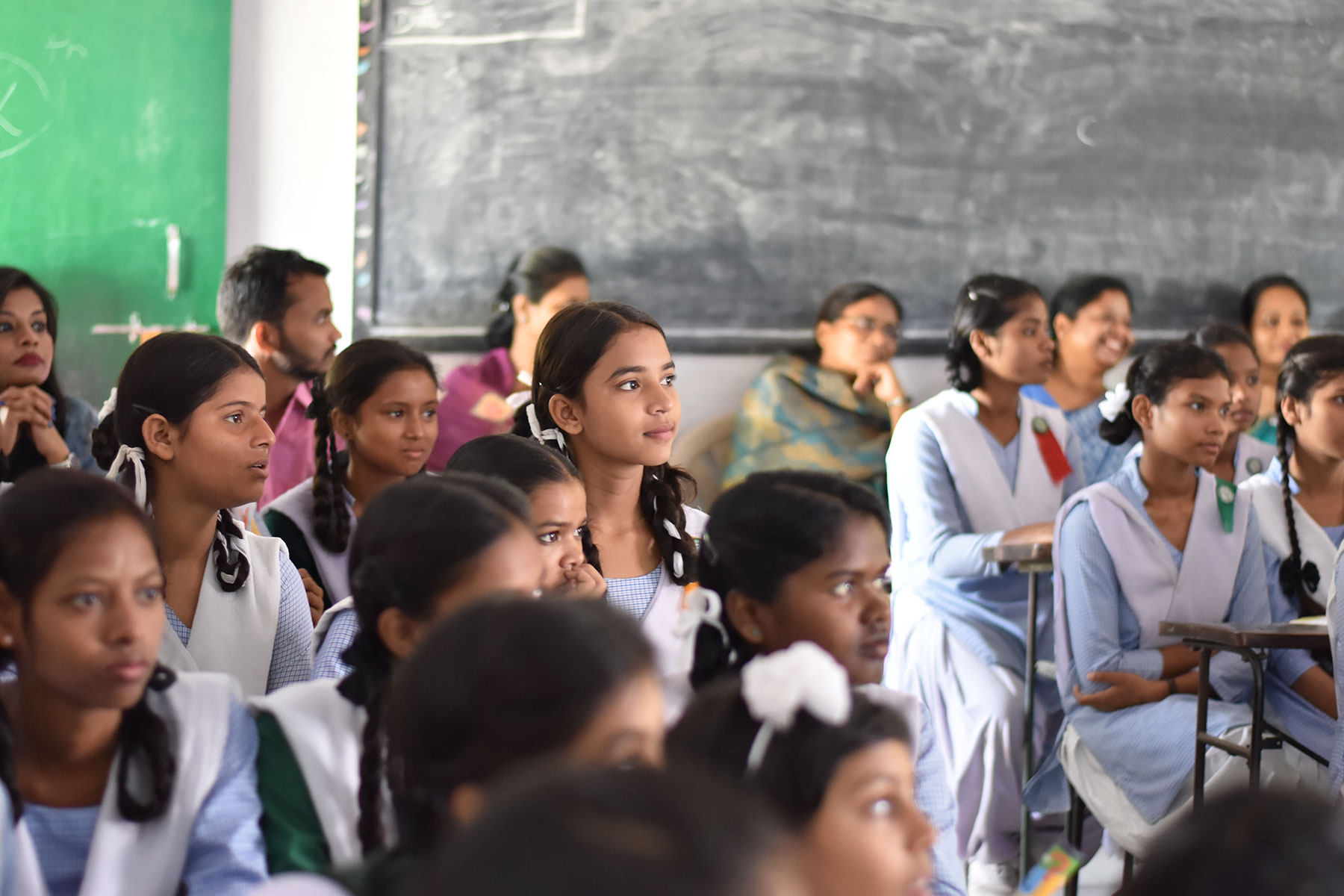









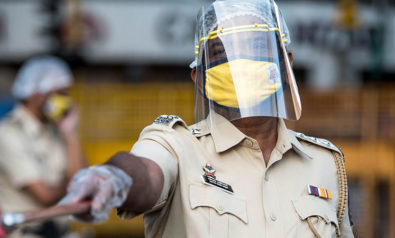
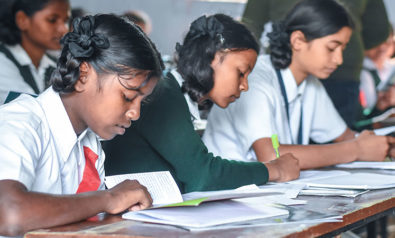
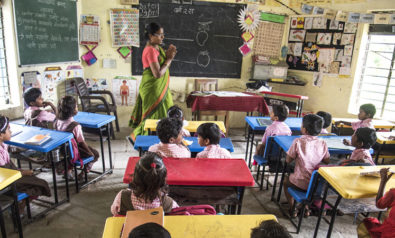



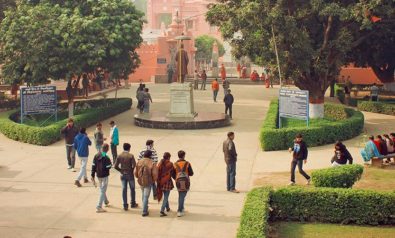



Comment